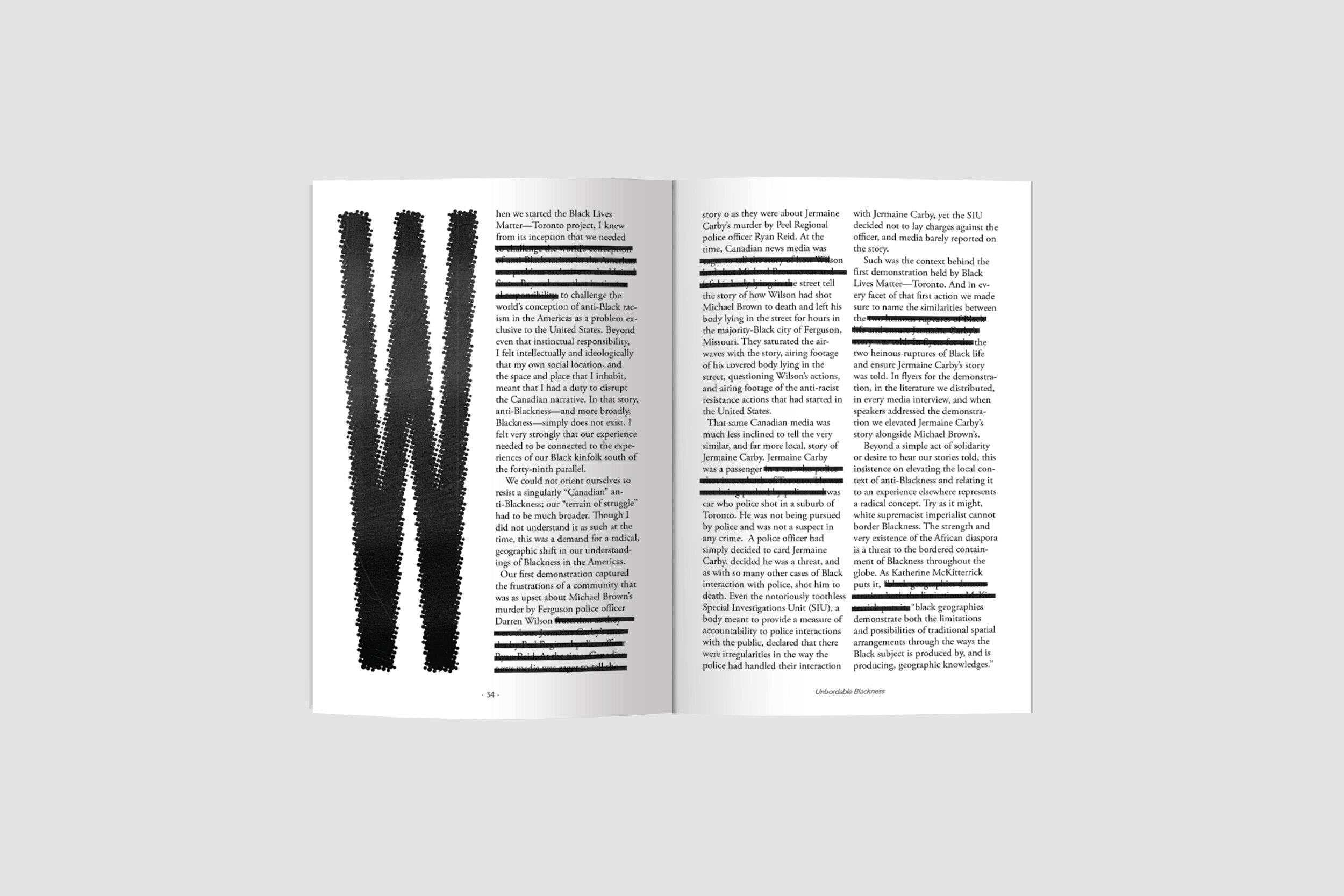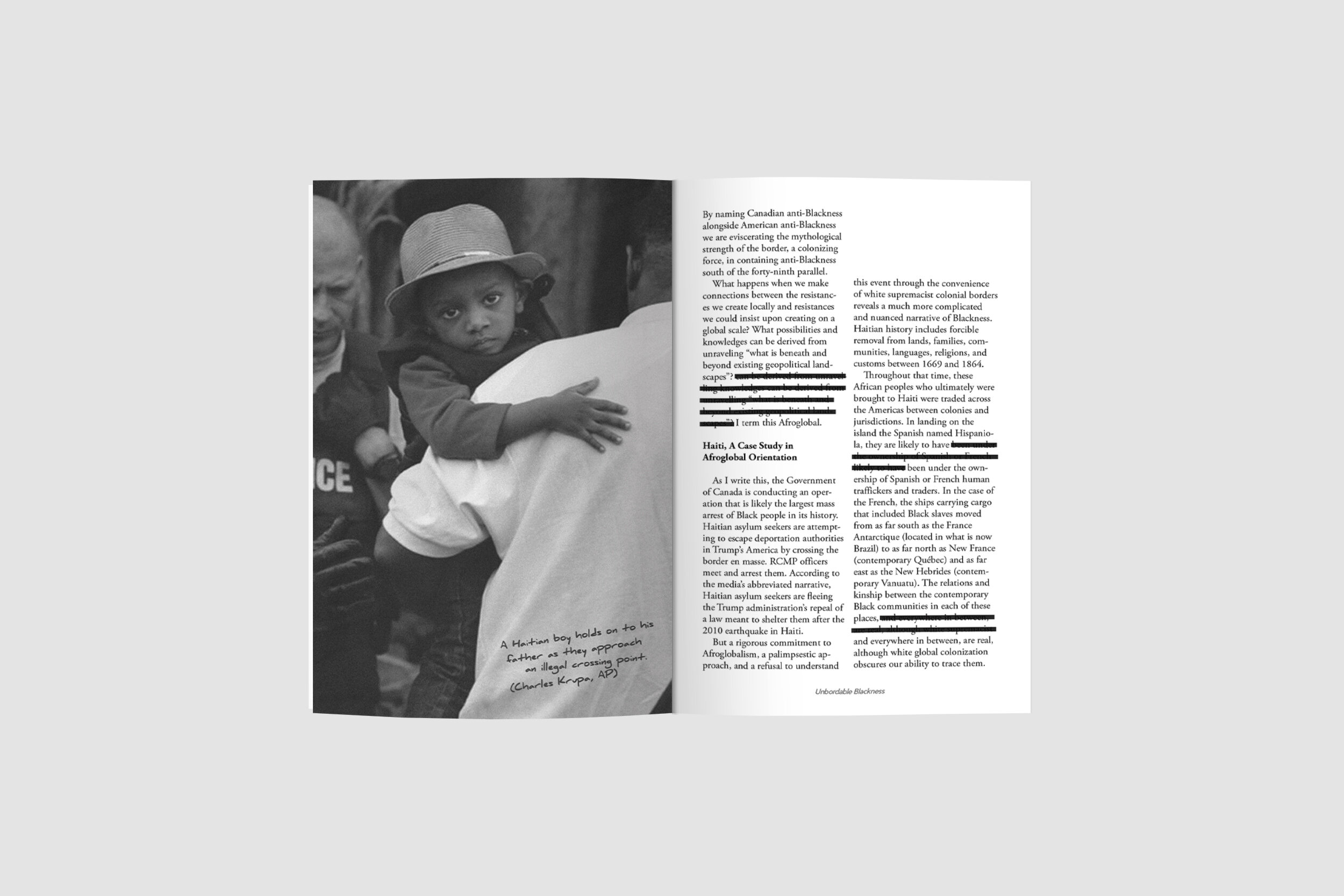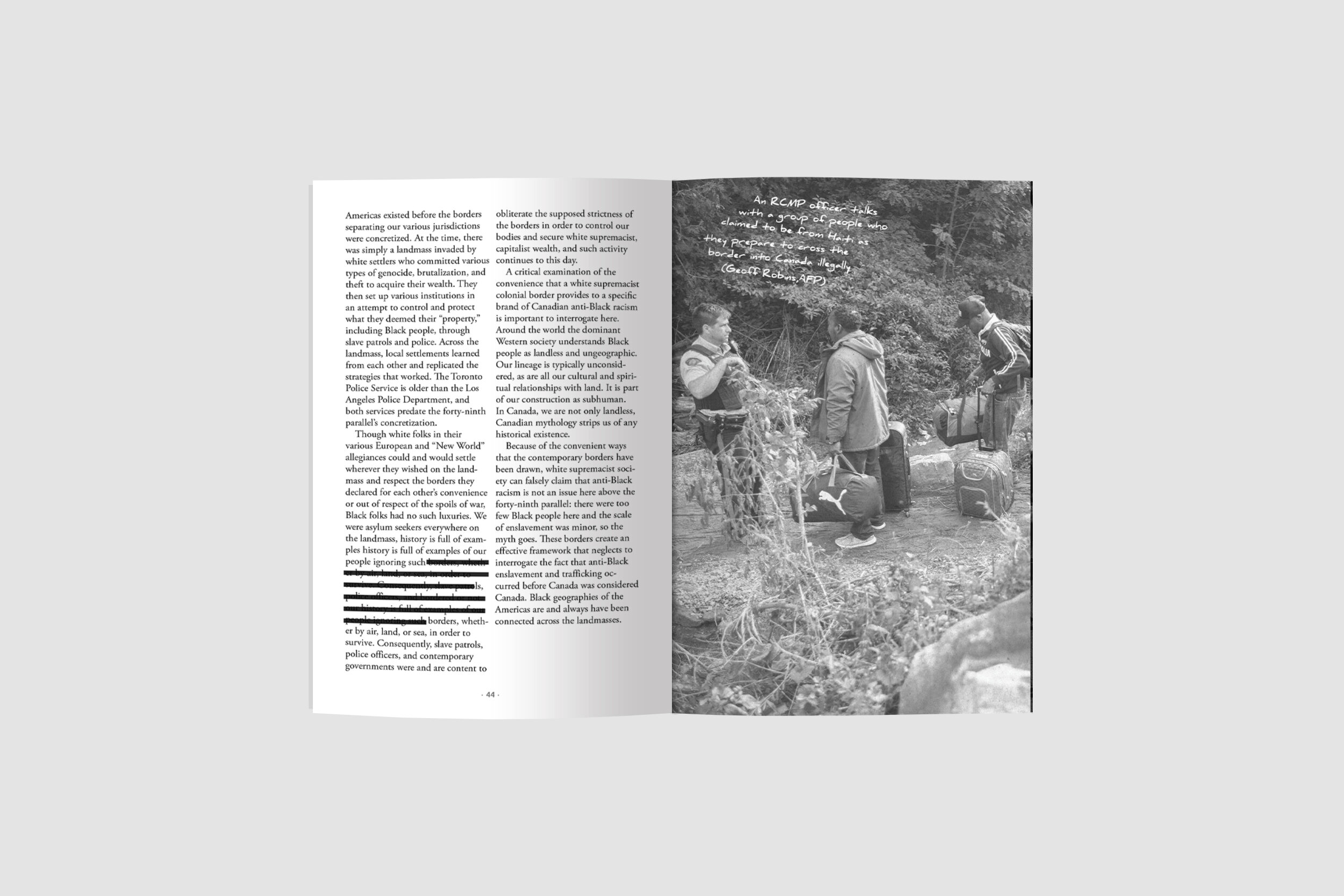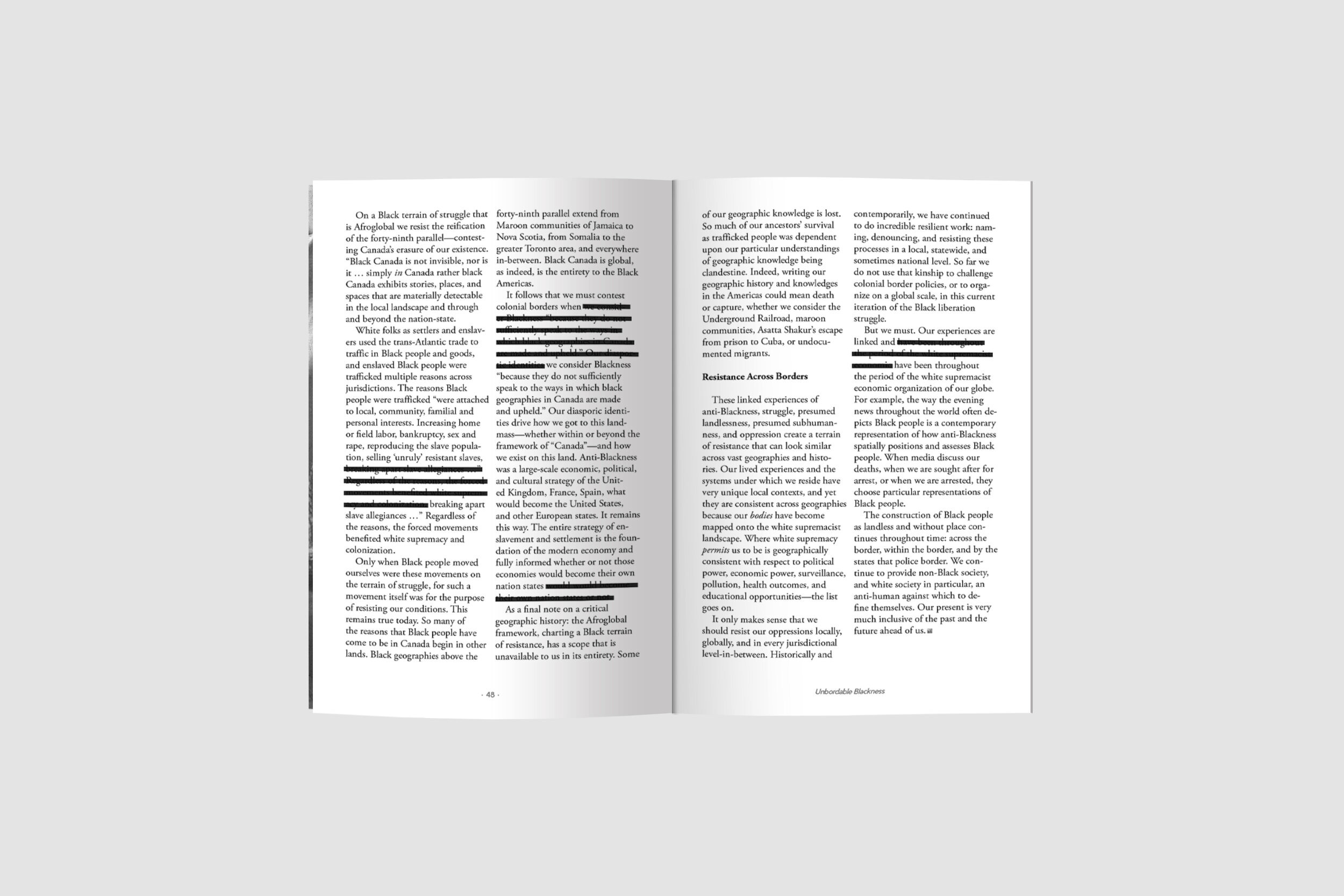Unbordable Blackness: How Diasporic Black Identities Pose a Threat to Imperialism and Colonialism Everywhere
Sandy Hudson
Our lived experiences and the systems under which we reside have very unique local contexts, and yet they are consistent across geographies because our bodies have become mapped onto the white supremacist landscape. Where white supremacy permits Black people to be is geographically consistent with respect to political power, economic power, surveillance, pollution, health outcomes, and educational opportunities—the list goes on. Black geographies demonstrates both the limitations and possibilities of traditional spatial arrangements through the ways the Black subject is produced by, and is producing, geographic knowledges.
In this outstanding essay on Canada’s relationship with Haiti, Black geographies, and the white supremacist convenience of borders, @sandymhudson explains how Western society understands Black people as landless and ungeographic. Our lineage is typically unconsidered, as are all Black cultural and spiritual relationships with land. It is part of their construction as subhuman. In Canada, Black people are not only landless, Canadian mythology strips them of any historical existence.









